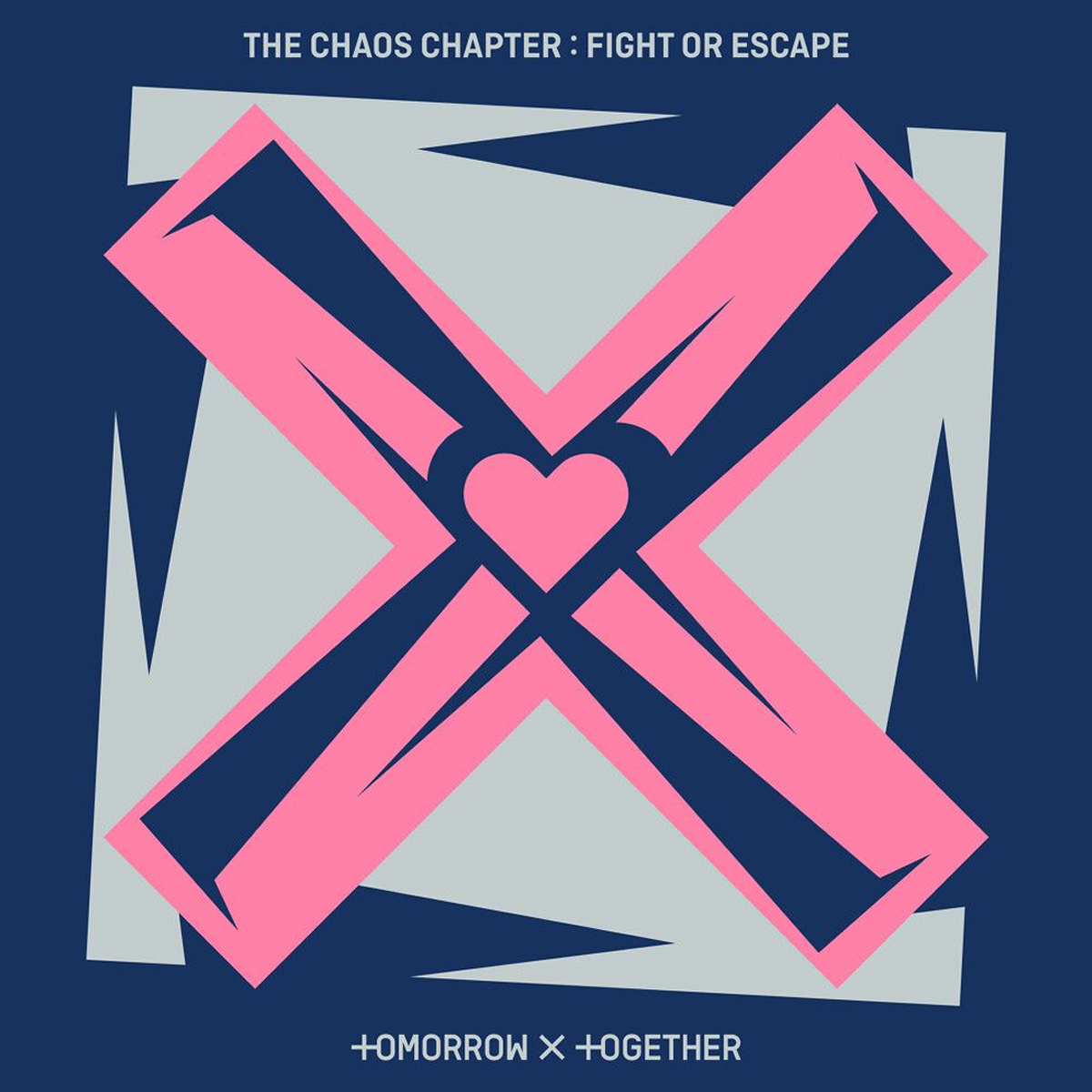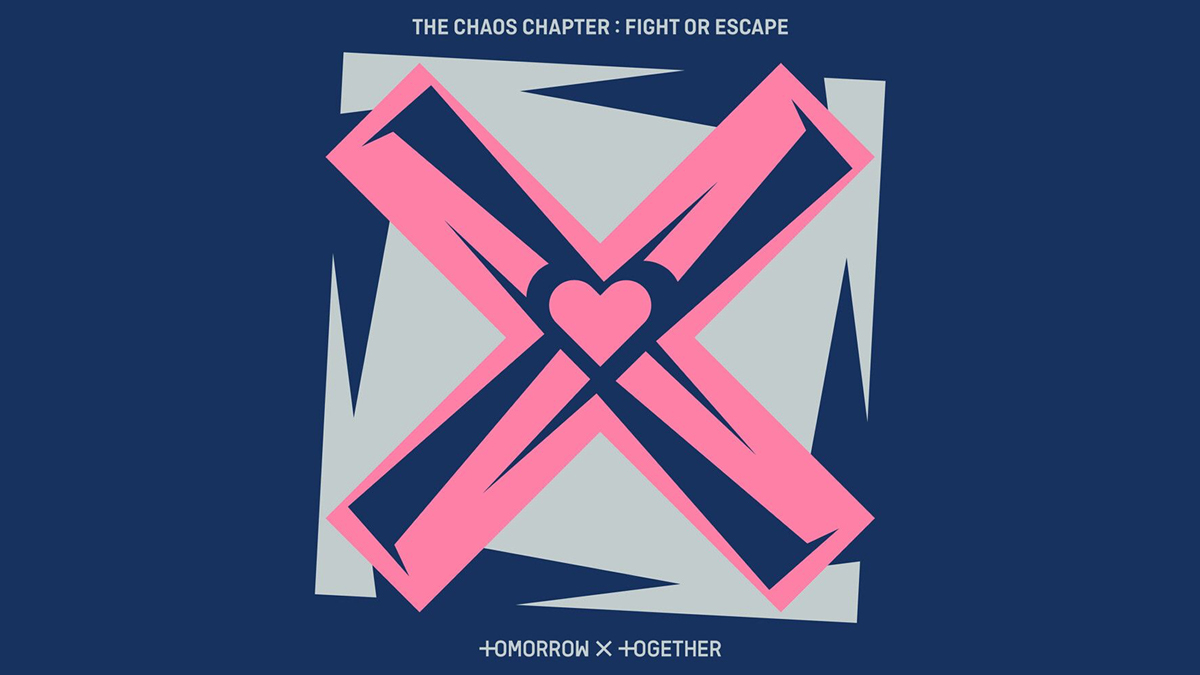
-
 ©️ BIGHIT MUSIC
©️ BIGHIT MUSIC
(It’s somewhat awkward to talk about this since I only worked on a very small portion of the entire song, but) It wasn’t easy writing lyrics for TOMORROW X TOGETHER’s music at all. Naturally, poems and lyrics are governed by entirely different rules, and it also only makes sense that, for someone like me with little experience with it, writing lyrics wouldn’t be easy, but the major difficulty for me didn’t come from my unfamiliarity with the work. Where I did find difficulty was with how unique TOMORROW X TOGETHER are as a group. The unique approach that they had established up to that point wasn’t easy for me to match.
The word “worldview” has been very closely associated with the idol scene for quite a long time. It’s moved beyond the simple concept of nicknames, as with first-generation idols like Lee Hyori (“Red”) and Lee Jin (“Blue”), to the way contemporary idols are more enthusiastic and proactive in their character creation. The idols’ unique worldbuilding, which have always been influenced by subcultures, makes them into characters more like the protagonists of a manhwa and that sense of fantasy actually makes the experience more immersive. The advantage to this highly engaging strategy is that it makes the idols appealing in a wider variety of ways, but it comes at the cost of making it somewhat difficult for people to become fully immersed because of the density and depth. Moreover, as K-pop itself begins its global expansion, it’s fair to say that the way the worldviews tend to chase after popular culture, rather than leaning on established subcultural grammar, carries with it a certain kind of risk.
Despite this, TOMORROW X TOGETHER chose to bolster and push ahead with their worldbuilding. The Dream Chapter trilogy, made up of STAR, MAGIC and ETERNITY, could be described as the cornerstone that laid the foundation for the group’s established worldview, beginning with the image of the antlered boy in “CROWN,” then the motif of unusual experiences and escape captured in “9 and Three Quarters (Run Away)” and the rest of the MAGIC album, and finally the idea of sekaikei in “Can’t You See Me?” (Sekaikei refers to a type of narrative that was popular in a Japanese subculture at the end of the century where the fate of a fantastical world is directly tied to a relationship between a boy and girl and reflects the tender sensitivities of adolescence.) Even among contemporary worldviews, which take a similar approach, the series of consistent worldviews laid out in The Dream Chapter was far denser than what is readily found elsewhere in the idol scene. But if everything I’ve written about so far were all there is to TOMORROW X TOGETHER’s worldview, then writing lyrics for them never would have been as difficult as it was. Although dense, it’s also a simple and clear world, so I would have been able to make use of their grammar. What I found challenging while working with the group’s worldview, once a thing of fantasy, was that it started to readily connect with reality as it expanded.
The first indication of this was in “We Lost the Summer” from minisode1: Blue Hour, on the heels of The Dream Chapter trilogy: Here, the COVID-era world is very elaborately linked to TOMORROW X TOGTHER’s unusual approach. The song describes losing a season and the listener while repeating the first of March as though trapped in time and in a world where people can’t return to school because they’re all closed and everyone goes around wearing masks. It’s a fascinating instance of capturing the world during COVID-19—a rarity for K-pop and a remarkable accomplishment (and, I believe, the TOMORROW X TOGETHER song with the most beautiful and delicate lyrics). But their interest in reality had already begun to be revealed in their previous works. They took an innocent approach to competitive society in “Can’t We Just Leave the Monster Alive?” while “Drama” can be read as an allegory for real life, however minor. Even more apparent connections to reality began to emerge on The Chaos Chapter: FREEZE and its repackaged album, The Chaos Chapter: FIGHT OR ESCAPE. The song “Frost” depicts the world at a standstill, picking up where “We Lost the Summer” left off, while “LO$ER=LO♡ER” likewise inherits the atmosphere of confusion and despair felt throughout FREEZE , taking a sekaikei-like approach to their anger against the competitiveness of society.
Other idols typically hide the real world from view in songs that are heavily invested in their worldview, while that unrealistic world tends to take a backseat in songs that are more in touch with reality. They’ve chosen a kind of two-track approach, in that regard. TOMORROW X TOGETHER’s music takes on a different attitude, however, by actively inserting reality into their worldview by specifically choosing to expand the world through combining the two views (the emphasis on rock on the Chaos Chapter albums was presumably intended to highlight this awareness of reality all the more). The group will have to clarify the reason behind this challenging choice and prove whether it’s the right one through their music going forward, but there can be no debate that their work has been unique up to this point.
For this reason, one must strike a balance while writing so that the worldview and reality can coexist and make for a good pop song. Dense lyrics, compressed language and metaphorical imagery become inevitable when it comes to surmounting this challenge within the span of roughly three minutes of music. TOMORROW X TOGETHER consequently became a group with a distinct rhythm and grammar.
The long, detail-heavy titles, the repeated image across multiple songs of two people in a crumbling world, the lyrics that show the large gap between them and the montages they produce: All of these elements have become signatures of TOMORROW X TOGETHER. I see this strategy of continuously using dense language and images as aiming for an effect similar to a literary style of writing. It’s both a characteristic way of speaking within the realm of idol music that demonstrates the artist’s individuality and an interesting method of diversifying the musical aspect while maintaining and strengthening the existing storylines, thanks to which longtime listeners of TOMORROW X TOGETHER will come to know the story that unfolds within the world of the group whenever lyrics from songs off previous albums come up again in their later songs. And those listeners will naturally become more deeply immersed in the story as they read into its meaning.
I had to understand the context here to some extent before I could write lyrics for TOMORROW X TOGETHER. Without keeping in mind the motifs and imagery from their music and the visuals in their videos while writing, I risked deviating from the worldview that the group has built. Plus, as explained before, because the story had to be told on both the fictional world and realistic levels, it was crucial that I focus on metaphorical images and revolve my work around certain key words and phrases found in the song and throughout the album. It was also, as I said, essential that I distill a dense swath of information into short words and images in order to express all of this.
No wonder it was so hard to write those lyrics. I imagine many of the writers behind TOMORROW X TOGETHER’s lyrics have spent their share of time with their heads in their hands in the face of this difficulty. I can at least attest to doing as much myself. But I must say that it also made for very enjoyable and interesting work as a result. As someone who makes a living writing in other mediums, discovering and learning about new areas is, above all else, a great joy. I can’t be the only one who’s watching expectantly to see how TOMORROW X TOGETHER will expand and develop their worldview and its connection to reality as they move forward in the future.
Unauthorized reproduction and distribution prohibited.